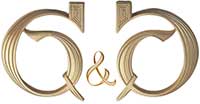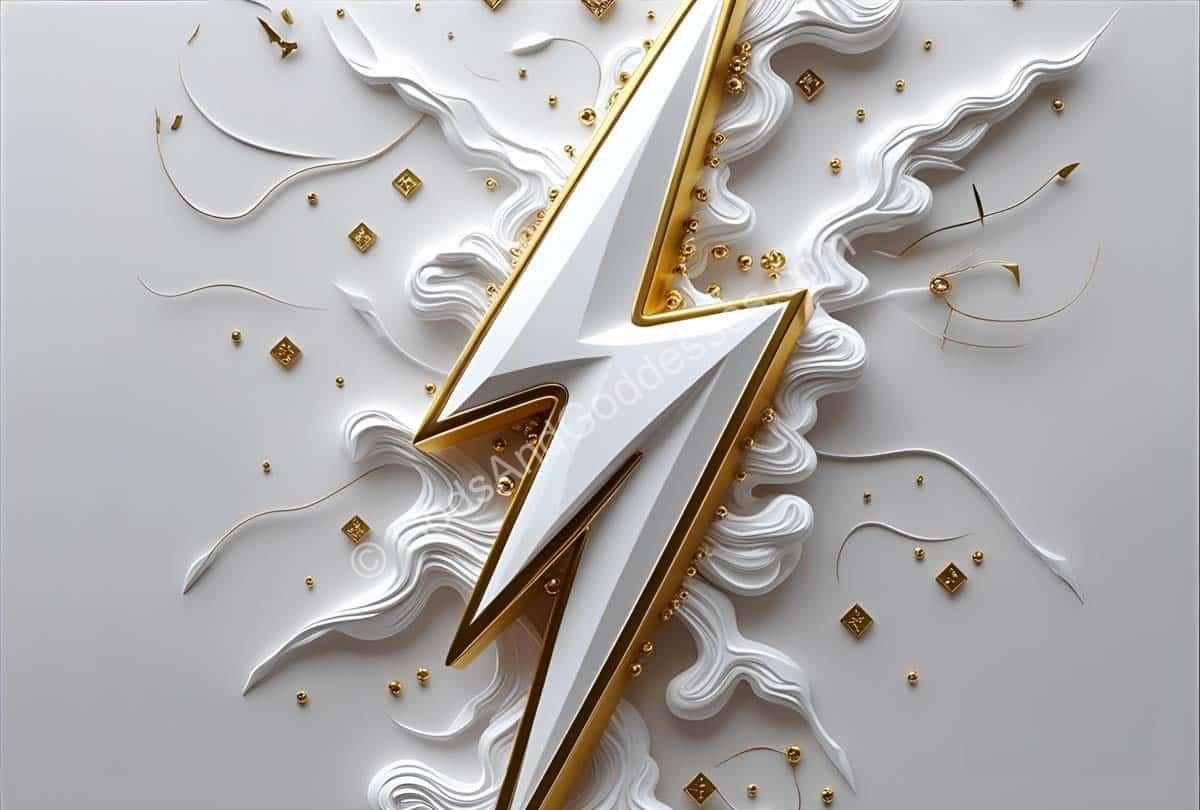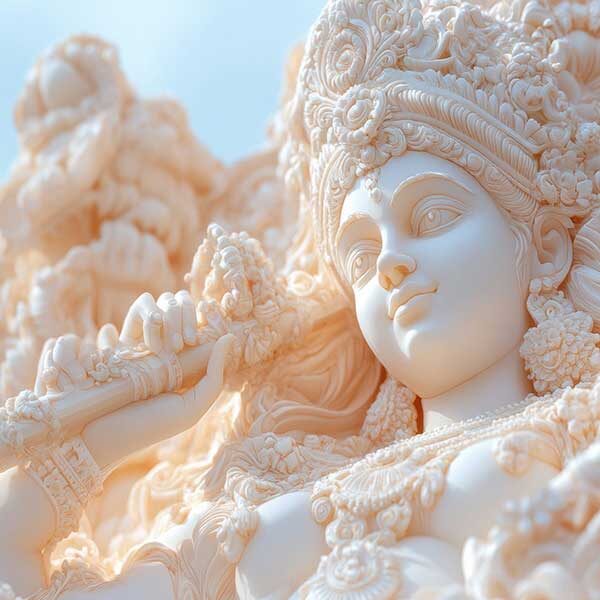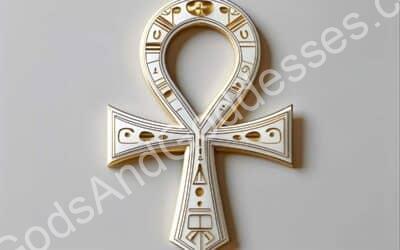Introduction: Why the Lightning Bolt Still Matters
Few symbols in mythology strike as quickly and decisively as the lightning bolt. A flash of fire from the sky, the lightning bolt embodies divine authority, destructive force, and cosmic order. Across cultures, gods who wielded lightning were not just storm bringers—they were lawgivers, creators, and destroyers, whose power could bless or annihilate in an instant.
At GodsAndGoddesses.com, we explore God Symbols, Types of Gods, and Stories About Gods to uncover how ancient images shaped divine archetypes. From Zeus hurling bolts from Mount Olympus to Indra riding storms over India, and Thor summoning thunder in Norse sagas, the lightning bolt has always stood as a weapon of supreme divine power.
“Lightning was the gods’ signature—a reminder that their will could not be ignored.”
See also: Mythology, Gods, and Goddesses.
Key Takeaways About the Lightning Bolt
-
The lightning bolt is a universal mythological symbol of divine power, authority, and judgment.
-
Zeus wielded it as his weapon of justice in Greek mythology.
-
Indra used the Vajra to slay the serpent Vritra in Vedic tradition.
-
Thor’s hammer Mjölnir was linked to thunder and lightning in Norse myths.
-
The lightning bolt symbolizes both destruction and renewal, judgment and inspiration.
Zeus and the Greek Lightning Bolt
In Greek mythology, Zeus is inseparable from the lightning bolt.
-
Forged by the Cyclopes, the lightning bolt was Zeus’s ultimate weapon in the Titanomachy, the great war against the Titans.
-
Each bolt symbolized justice and order, punishing oath-breakers and rebels against divine law.
-
Ancient Greeks viewed storms as manifestations of Zeus’s presence, thunder and lightning striking where his authority was felt.
See also: Zeus: God Worship and Rituals
External resource: World History Encyclopedia – Zeus
Indra and the Vajra
In Vedic tradition, the storm god Indra wields the Vajra, a weapon often depicted as a thunderbolt.
-
Used to slay the serpent demon Vritra, who had stolen the world’s waters.
-
Symbolizes victory over chaos, restoring order and fertility.
-
Still central in Hinduism and Buddhism, where the Vajra also symbolizes unshakable spiritual power.
Thor’s Thunder and Lightning
In Norse mythology, lightning was tied to Thor, god of thunder and protector of Midgard.
-
His hammer, Mjölnir, often produced lightning strikes when thrown.
-
Lightning reflected Thor’s role as both warrior and defender, battling giants and protecting humanity.
-
Farmers prayed to Thor during storms for rain and fertility.
See also: Odin: Norse God of Wisdom, Magic, and War
The Symbolism of Lightning
The lightning bolt’s power is more than physical—it is deeply symbolic:
-
Divine Authority – A sign of the gods’ will and supremacy.
-
Judgment and Justice – Punishment for oath-breaking and rebellion.
-
Creation and Destruction – Fire from the sky can bring life-giving rain or fiery ruin.
-
Transformation – A sudden strike often marks revelation, clarity, or divine intervention.
“Lightning is both the strike of judgment and the spark of inspiration.”
Lightning in Modern Symbolism
The lightning bolt remains potent even today:
-
Heraldry and Flags – Symbol of military strength and swiftness.
-
Pop Culture – From superhero icons like The Flash to Harry Potter’s scar, lightning suggests speed, destiny, and raw energy.
-
Spiritual Practice – Represents flashes of insight, awakening, and divine inspiration.
External resource: Britannica – Lightning Symbolism
Frequently Asked Questions
Why is the lightning bolt a symbol of gods?
Lightning represents power from above—divine authority beyond human reach.
Which gods used lightning bolts?
Zeus (Greek), Jupiter (Roman), Indra (Vedic), Thor (Norse), and others.
What does lightning symbolize in spirituality?
Awakening, revelation, and sudden clarity.
Is the Vajra the same as a lightning bolt?
Yes, in many traditions the Vajra is described as a thunderbolt weapon of divine power.
Conclusion
The lightning bolt is one of mythology’s most enduring symbols—an emblem of power that commands respect across cultures and time. From Zeus to Indra, Thor to Jupiter, the gods who hurled lightning were enforcers of cosmic order, striking swiftly to remind humanity of the fragile line between life and death.
Today, the lightning bolt continues to inspire as a mark of strength, transformation, and divine energy.
Explore more:
“The lightning bolt remains the gods’ fire—blinding, beautiful, and absolute.”
- Odin God Story - August 24, 2025
- The Story of Ra: Egyptian Sun God and Creator - August 24, 2025
- Kraken: Mythological Sea Monster of the Deep - August 24, 2025




